
UK heatwave: easy ways to save water during a drought
After weeks without rain, the grass is parched, the ground is cracked and a drought has officially been declared across eight areas of England. Water companies are expected to impose restrictions but what more can individuals do to curb water use?
How much water should I use?
According to the World Health Organization, people need to use at least 20 litres of water a day for basic hygiene, and 50-100 litres should cover basic needs and prevent health problems from poor sanitation.
Average consumption in England and Wales is slightly above. This used to average about 145 litres, but increased to 153 litres a day during the pandemic as people spent more time at home, according to figures from Water UK.
According to Rob Lawson, a director at Artesia Consulting, which advises water companies, the figures conceal the fact that most people are modest users of about 100 litres a day and a small number are very high consumers.
The best way to reduce overall consumption is for those who are the biggest users of water to cut down – although this is not always possible.
How much should I worry about my water use?
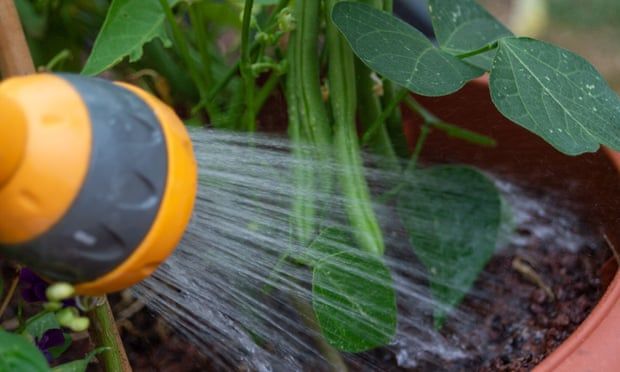 Water consumption uses energy, which will have an impact on household bills.
Water consumption uses energy, which will have an impact on household bills.
Remember: it’s not your responsibility alone. Dragan Savic, a professor of hydroinformatics at the University of Exeter, points out that about 3-5% of water use happens at home and another 5% is used by businesses. Most water use is in agriculture.
But everybody making small changes can make a huge difference overall. In Germany, consumers successfully reduced their average daily water consumption from 147 to 125 litres between 1990 and 2021 as part of the country’s efforts to combat climate change.
Alison Browne, at the University of Manchester, thinks people should reframe how they think about water consumption. Consider the fact that water consumption uses energy, which will have an impact on soaring bills as well as carbon emissions, of which 6% are attributed to water use in homes.
How should I check for leaks?
One of the best ways to reduce your overall water consumption is to spot leaks quickly. Most water companies will provide home visits to help households identify leaks as well as fit devices that are more efficient at using water, Lawson says.
Common leaks include cheap dual-flush toilets that leak water into the bowl or from the supply pipe that feeds water into each home.
According to the campaign group Waterwise, consumers can detect a slow leak by adding a few drops of food colouring to their toilet cistern, leaving it for an hour without flushing, and if it is then present in the pan, there is a leak. Installing a water meter can also help track how much water you are using. Savic said his research had found that meter users consumed 17% less water, in part due to being able to quickly identify leaks – a leaky toilet can waste 200-400 litres a day.He recommends meters that provide instant feedback to smartphones or wall displays to alert consumers to leaks or excess usage.Browne suggested keeping an eye out for leaking taps and loos outside your home, and finding out who to report them to in workplaces, restaurants, shops and other locations.
How often should I shower?
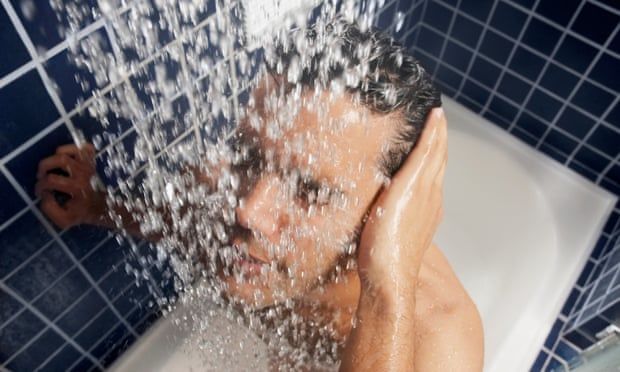 Baths and showers account for the most water consumption in the home.
Baths and showers account for the most water consumption in the home.
Most people in the UK shower at least once a day, according to YouGov polling – even though dermatologists say this is not necessary unless you are doing physical exercise or exposed to hazardous chemicals, and can be bad for your skin.
According to Waterwise, baths and showers account for the most water consumption in the home, at about a third. Surprisingly, some power showers may use more water than a bath, though a short shower (about four minutes) with an efficient aerated or low-flow shower head is the best option. A typical five-minute shower uses about 50 litres – although a low-flow head uses only 30 – while a full bath uses 80 litres.
“Low-flow shower heads would be my first choice for reducing water consumption in a home,” says Savic.
Browne recommends that people “bring back the habits of our grandparents” and use a flannel to cool down or have a quick clean instead of jumping in the shower.
She also suggests channelling your inner free spirit and letting go of our societal fixation with cleanliness. Once you are clean enough to stay healthy, further cleaning does not really help. Her research found that people at festivals “really, really enjoy the luxury of reducing expectations around daily showering”, and it was something people said they appreciated working from home during the pandemic as well.
How else can I save water in the bathroom?
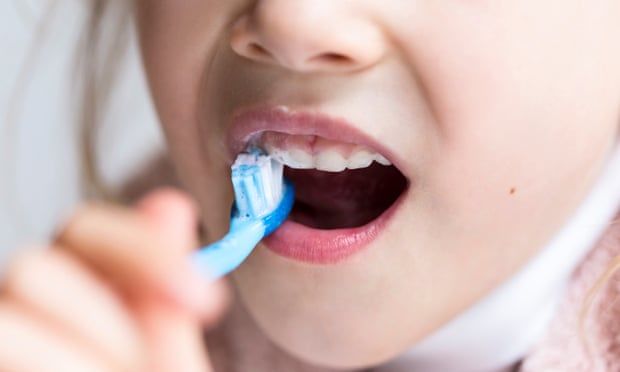 A running tap wastes about six litres of water a minute.
A running tap wastes about six litres of water a minute.
Perhaps unsurprisingly, the answer is not to put a brick in the toilet, which plumbers discourage as they can crumble and damage the structure. Instead, you can request a cistern displacement device for free from most water companies, which saves one litre every time you flush or up to 5,000 litres a year.
Toilets account for about 30% of household consumption, though this is much higher for older models, according to Waterwise. These should ideally be updated with a split-flush button that gives the user the choice of how much water to use.
Savic also suggests turning off the tap while brushing teeth, washing hands and shaving to save a “considerable” amount of water – a running tap wastes about six litres a minute.
What about doing the dishes and laundry?
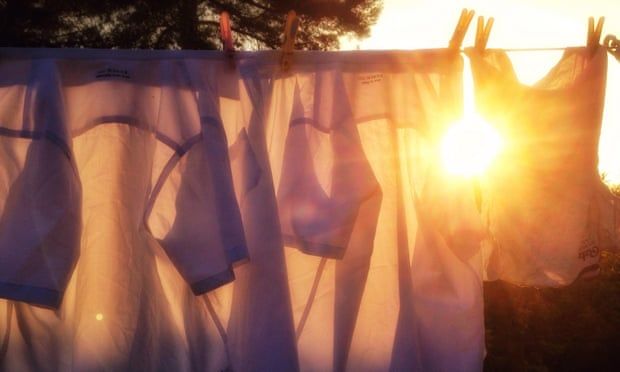 Handwashing clothes uses much less water than a washing machine.
Handwashing clothes uses much less water than a washing machine.
Look for a water-efficient model when purchasing dishwashers and washing machines, fill both up as much as you can and use the eco mode.
For dishwashers, avoid pre-rinsing plates (it’s not necessary). If you are washing by hand, use a bucket to catch and reuse water. Research by Which? estimates that dishwashers are, on average, four times more water efficient than washing by hand per place setting.
Handwashing clothes uses much less water, at about eight litres a bowl wash and 30 litres for each running-tap wash, compared with an average 50 litres for a washing machine cycle (although this depends on the model). If the thought of hand-washing clothes strikes horror, consider washing your clothes less often – they will last longer and it is more sustainable too.
How can I look after my garden?
 Try using old bath water to refresh wilting flowers in your garden.
Try using old bath water to refresh wilting flowers in your garden.
As droughts increase, there is a growing backlash against water-intensive suburban status symbols such as manicured lawns and thirsty plant species such as begonias.
If you are reluctant to part with these, try reusing old bath water (although not on fruit and vegetables), catching rain water in a water butt (some companies will subsidise your purchase), and using hydrogels, mulch and bark to reduce evaporation, and watering cans.
Waterwise says people do not need to water their lawn when it goes brown – it will quickly return green when it rains and will save you using 12 baths’ worth of water an hour with a hose or sprinkler. Check the weather forecast – if rain is on the way, your plants can wait – and water in early morning or late afternoon to minimise evaporation.
Does my hot tub/paddling pool have to go?
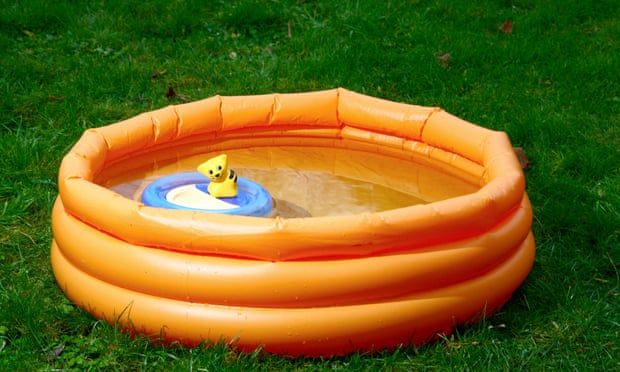 Emptying and refilling a paddling pool every day for a week could use up to 3,700 litres of water.
Emptying and refilling a paddling pool every day for a week could use up to 3,700 litres of water.
It’s tempting to cool off during a heatwave in a paddling pool but remember there is a hosepipe ban in place in many parts of the country. Severn Trent Water warns that emptying and refilling a paddling pool every day for a week could use up to 3,700 litres of water, equivalent to 102 showers.
As a general rule outside times of drought, if you must use a paddling pool, fill it halfway, keep the water for three days, then reuse it in the garden.
Hot tubs were a popular pandemic impulse buy, but according to Browne this means more households have “incredibly water-intensive structures sitting in their backyards”.
The hot tub and swim spa company estimates that a small hot tub may hold about 6,592 litres of water, while a larger, family-sized hot tub could require 11,365 litres – more than 100 times the recommended daily consumption level.
The overall use depends on how often you change the water – recommendations vary from one to six months.
It would be best for everyone to use public swimming pools and baths instead, yet 600 closed over the past three years. Browne thinks affordable access to swimming should increasingly be considered a public health priority, along with improving water quality in wild swimming spots.










